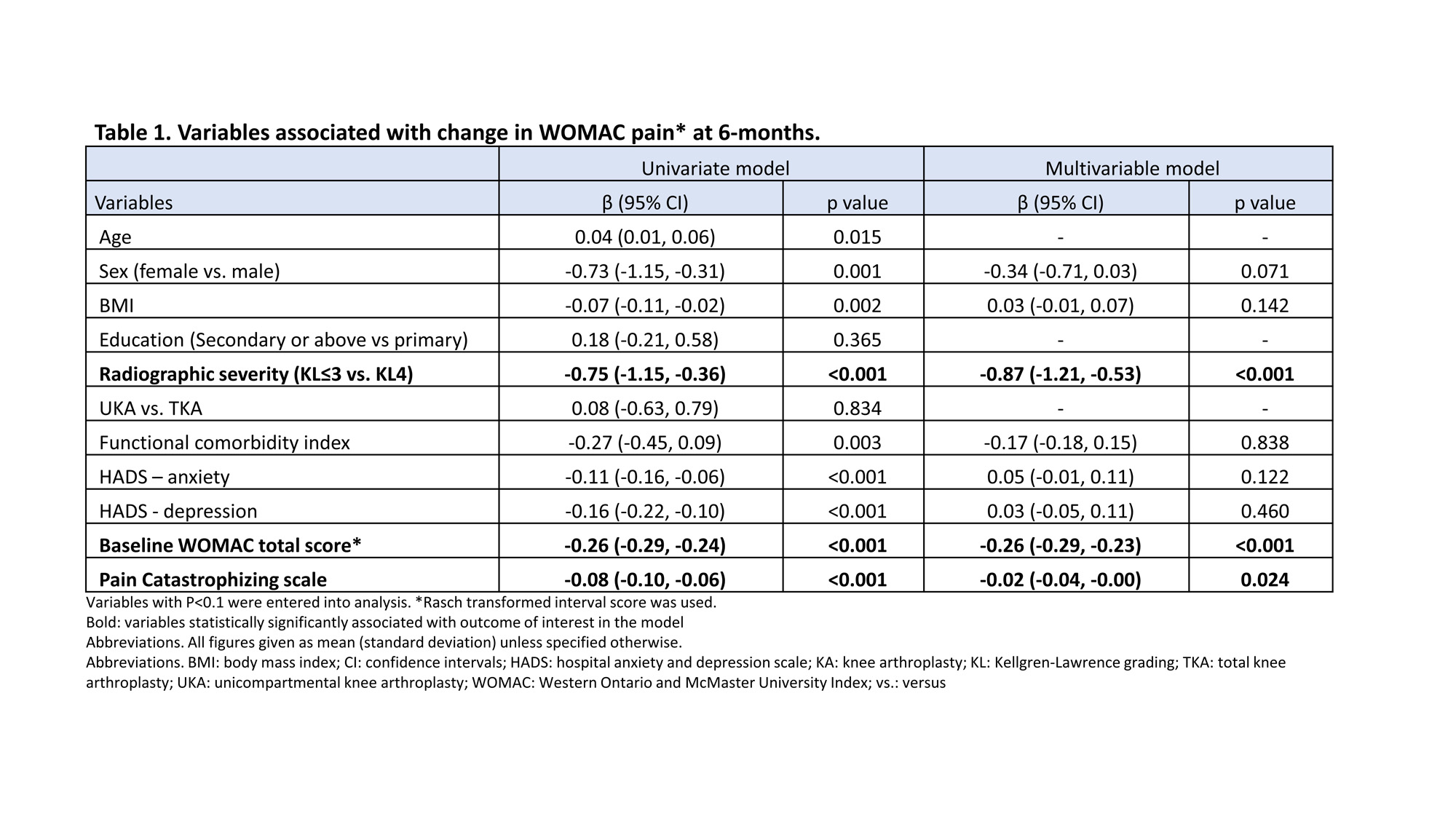Session Information
Session Type: Poster Session A
Session Time: 9:00AM-11:00AM
Background/Purpose: To evaluate the association between pre-operative pain catastrophizing and pain and function outcomes up to one year after knee arthroplasty.
Methods: We used data from a cohort study of patients undergoing primary arthroplasty (either total knee replacement or unicompartmental knee replacement) for knee osteoarthritis. Pain catastrophizing was collected pre-operatively using the Pain Catastrophizing scale (PCS). Other baseline variables included demographics, body mass index, radiographic severity, anxiety, depression, and knee pain and function assessed using the Western Ontario and McMaster University Index (WOMAC). Patients completed the WOMAC at 6- and 12-months after arthroplasty. WOMAC pain and function scores were converted to interval scale and the association of PCS and changes of WOMAC pain and function were evaluated in generalized linear regression models with adjustment with confounding variables.
Results: Of the 1,200 patients recruited into the cohort study, 1136 underwent arthroplasty, 1102 provided data at 6-months post-operative and 1089 provided data at 12-months post-operative. Mean (SD) age of participants was 65.9 (7.0) years, 70% were female, 84% were Chinese, and 92% had a total knee replacement. PCS was associated with a change in WOMAC pain at both 6- and 12-months post-operative after adjustment. PCS was associated with a change in WOMAC function in univariate analysis but not after adjustment in multivariable models.
Conclusion: In this large cohort study, pre-operative pain catastrophizing was associated with lower improvements in pain at 6-months and 12-months after arthroplasty. Future interventional studies are needed to evaluate if reducing pre-operative pain catastrophizing can improve pain outcomes after arthroplasty.
To cite this abstract in AMA style:
Chan D, Saffari S, Wong S, Yeo S, Wylde V, Thumboo J, Leung Y. The Influence of Pain Catastrophizing on Pain and Function After Knee Arthroplasty for Osteoarthritis [abstract]. Arthritis Rheumatol. 2023; 75 (suppl 9). https://acrabstracts.org/abstract/the-influence-of-pain-catastrophizing-on-pain-and-function-after-knee-arthroplasty-for-osteoarthritis/. Accessed .« Back to ACR Convergence 2023
ACR Meeting Abstracts - https://acrabstracts.org/abstract/the-influence-of-pain-catastrophizing-on-pain-and-function-after-knee-arthroplasty-for-osteoarthritis/

